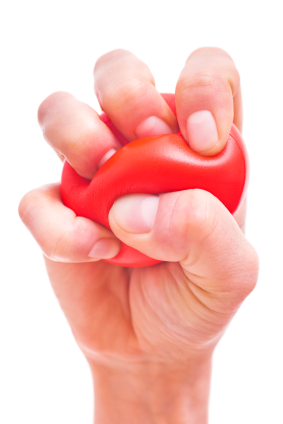The Takeaway: Many sports drinks claim to enhance performance and recovery, but by knowing what your body needs, you can determine whether these drinks are worth the time and money.
Nowadays, sports drinks are advertised to just about anyone who might possibly ever become dehydrated, active or not. Highly specialized beverages like Gatorade’s G series drinks are even commonly sold in hardware stores, schools and big box shopping centers. Yet, few actually need the performance aid for their casual daily activities. Furthermore, even hardcore athletes and average Joe gym goers can curtail their training and results by reaching for the wrong bottled beverage.
Those with a thirst to quench have dozens of choices nowadays. Some of the most popular are Gatorade, Endurox, Cytomax, Powerade and Accelerade. Not to mention the variety of ready-to-drink recovery shakes made by companies like Muscle Milk and EAS. Most of these contain more than hydration and carbohydrates, but oftentimes these additional ingredients boost marketability more than they boost performance.
At the most basic level, a sports drink’s fundamental purpose is to simply enhance endurance performance and training by delaying fatigue through fluid, carbohydrates and electrolytes. Luckily, with a little useful information on the basic make up of these drinks anyone can quickly fulfill these needs through simple strategies that don’t require top dollar.
First, if your activity is high-intensity and is not longer than 60 minutes, there is no need for a sports beverage. This is because there is no risk of dehydration to the body’s fluids or exhaustion of the body’s readily usable energy sources. Additional sugars, like those in your everyday sports drinks are not necessary for most, as the sugar content likely ends up being stored as body fat in those who are not active. Once exercisers begin to push beyond 60 minutes and above moderate intensity, the needs can increase to the point where water alone is not enough. In this case, it may be important to decide which aspects of a hydrating drink may come in handy.
Electrolytes: Water’s best friend
Electrolytes not only help the body stay hydrated, they also help with optimal performance. Sodium and potassium are by far the most important electrolytes and should be incorporated into every good sports beverage. These two substances create positive concentration gradients that keep water correctly placed within your body’s vessels. Other minerals like magnesium, calcium and chloride can be useful in drinks, but only for long distance athletes whose training consists of activity lasting longer than 2 hours. Otherwise, supplementation of these other minerals is not shown to be performance enhancing. The take home rule for all electrolyte-containing drinks is that sodium content should be between 120-170 mg per serving and potassium in much smaller amounts (~50 mg).
B Vitamins: The energy releasers
B vitamins like B6 and B12 (pyridoxine and cyanocobalamin) serve many physiological roles including breaking down proteins, fatty acids, and carbohydrates so they can be absorbed and used for energy. Drinks containing these vitamins may be useful for high intensity sports and endurance events. Even so, greater effects come from having a diet rich with these nutrients to aid in performance and recovery from strenuous exercise.
Carbohydrates: The important differences
Most sports beverages contain some mix of glucose, fructose, and possibly some disaccharides like sucrose and maltose. The important distinction between these sugars lies in how they are digested. Glucose is the body’s preferred source of energy and can be utilized quickly for activity. Fructose however, must first pass through the liver to be converted to glucose before being metabolized, thus its aid to performance is slower. The best drink will be 6-8% carbohydrates made up of both glucose and other sugars like sucrose, maltose and fructose for both rapid and sustained sources of energy to support continuous exercise.
Protein and Branched Chain Amino Acids: The building blocks of recovery
Proteins in sports drinks benefit us most after exercise to cease muscle breakdown and begin repairing muscle tissue. Recent studies have also shown beneficial properties of these ingredients when consumed prior to exercise. In moderate to high intensity sports, branched chained amino acids (valine, leucine and isoleucine) can help delay fatigue, boost physical performance and assist in fatty acid metabolism. These effects won’t turn a couch potato into an endurance champ, but can nevertheless help extend abilities.
Overall, the best strategy to wisely support performance depends most on the sport of choice. Those participating in moderate intensity activities on a frequent basis for 60 minutes or less should focus on good pre-activity meals and snacks, while leaving their hydration needs to water alone. Extra electrolytes and carbohydrates aren’t needed and could slow performance. For high intensity activities (football, boxing, etc.), exercisers can benefit from extra carbohydrates and fluid, but increases in performance are mostly seen in those at an elite level.
Endurance athletes are the prime prospects for sports drinks. However, there is nothing inherently superior about Gatorade or Powerade for enhancing performance besides their flashy labels. Below are common options which can provide similar benefits to those looking to increase their performance or stay hydrated.
Daily Hydration Drinks
Herbal tea, coconut water or water with sliced cucumber and lemon
Homemade Sports Drink Recipe
Mix ¼ cup sugar, ¼ tsp salt with ¼ cup hot water until the ingredients dissolve. Add ¼ cup orange juice, 2 tbsp lemon juice and 3 ½ cups cold water
Easy Post-Workout Recovery Options
Chocolate milk, Greek yogurt or a peanut butter and jelly sandwich
While sports drinks can be proclaimed as performance enhancing or even praised for their nutritional value, few of us actually need the ingredients they contain. If you want to prime, perform and recover, there are other ways to fulfill your sports nutrition needs.
 How to Combat Stress
How to Combat Stress